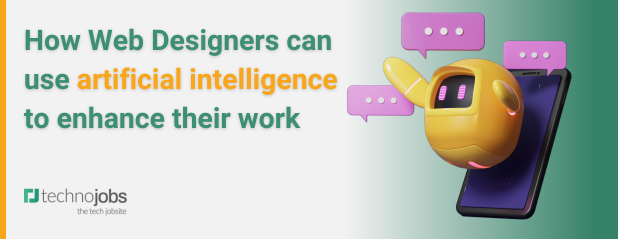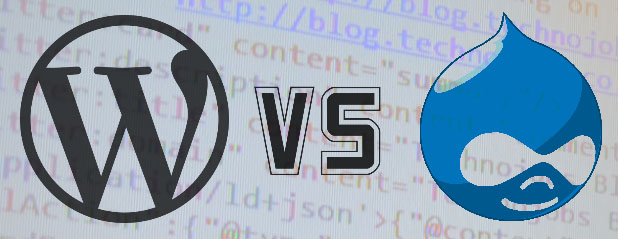Should I Go into Web Design or Web Development?

When it comes to building websites, it's more likely that creative types would associate themselves with web design whereas technical people are probably more accustomed to web development - but of course this entirely depends on the nature of your skills and qualities.
What does a web designer do?
The primary role is to create the look and feel of a website and to design an intuitive and unique user experience. Having knowledge of Photoshop and Dreamweaver would be necessary and usually an expectation of any potential web design job roles. Web designers may not jump straight into Dreamweaver though as they may want to use a wireframe application such as Balsamiq Mockups to build a basic skeletal layout to give the client an idea of structure and placement of where certain web elements will go. This is visioning the placement of the logo, the menu and even the smaller details like the social media icons and any relevant contact information. Once approved, it’s then the task of choosing the colours, font and style that matches the vision and branding of the client’s demands.
The front end consists of the part of the website that can be viewed and interacted like the page content, menu links and visual elements. A web designer may not always write and provide the code but a basic knowledge of HTML and CSS is expected. Depending on the instructions of the client, a web designer may build the basic frameworks of the website which entails linking all the content and providing the CSS (cascading style sheet). It also helps to have experience using Javascript and Jquery, with the latter being a compiled library of Javascript that would allow the addition of certain effects and abilities that could be implemented into your website to improve the user experience.
Overall, not only is design and creativity a main focus for web designers, the ability to have strong communication skills is an important trait to have. Being able to effectively explain to a client how the website will look and discussing other elements of web design in a way they can easily understand can relieve you of any setbacks further down the line incase of any errors caused by miscommunication. Other useful skills can include planning, strong organisational skills and keeping to schedules.
What about web development?
Fancy the technical and programming side of things? As a web developer your services may be required once a design of a website has been signed off. So essentially you’re handed the baton to then sprint to the finish line by bringing the design to life. Your responsibilities tend to consist of the following: the server, the database and the advanced programming. Typical programming languages that a web developer will be skilled in are PHP, ASP.net, Python, Perl, Ruby on Rails and C. You may work closely with the web designer as well, working together on such factors like mobile responsive websites and trying alternative designs if certain elements aren’t quite working.
It also depends on the type of website too you’re working on. If it’s a dynamic website like an e-commerce website then you will have to develop a secure and streamlined online shopping experience with a system that can add new products or services with ease. Strong experience with databases such as MySQL or Microsoft SQL Server is vital as you’ll be storing the sensitive information of customer’s private details as well as other important pieces of data. A static website such as a company or organisation’s website may not require as much functionality since its main purpose is to provide information and contact details but it’s still important these websites operate fast, efficiently and smoothly.
As mentioned before, providing the client with the ability to manage and update the content on their website is not only convenient but important too. This can be done by implementing a CMS and building the website around one. CMS’s make it simple for anyone with permission to modify a page’s content by changing the text or imagery. The most popular CMS and frameworks for websites are tools like Wordpress and Drupal. However, some developers may create their own CMS but with the assortment of plugins and support that come with the aforementioned tools it can help speed up the process of building the frameworks and structure of a website.
The final factors in developing a website are implanting different types of tools and abilities that allow your website’s performance to be analysed and managed. By setting up Google Analytics and Google Webmaster Tools for the client they can be provided with insight and statistics that show how the website is performing in terms of search results and the behaviour of web visitors. Clients will obviously want their website to perform well in search engines like Google or Bing and this is done by a implementing an effective strategic SEO and PPC plan. It may not be your job to provide the content and keywords as there are individuals who specialise in that but you may need to advise and have a system in place that can help push your website into Google’s PageRank system.
Could I do both?
Of course, but you’re taking on a large task. Both web designers and web developers have the same goal which is to create a website that looks and performs flawlessly. It is important that a web designer has knowledge of HTML and CSS but there are many one-man web teams, or jacks of all trade developers who are able to do everything for you. This could be a benefit to clients as they only have to deal with one person when trying to explain their vision for their website but you would need to have experience and skills in all areas of website creation that include design, front end/back end development and server management.
However, you may want to concentrate on one role before you take on both design and development responsibilities so you can gain experience and build a portfolio which is what clients want to see before they work with you. You will gain a basic understanding of each other’s roles and eventually the ability to excel in both creative and technical skills may become a possibility. Often those who are more creative will not enjoy coding and vice versa as the skill sets are quite different so it takes a lot of dedication and commitment to specialise in both.
How much can I earn?
Web Design salaries have been rising for a year or so along with demand and the average salary is now around £30,000. This signifies a rise of over 7% on the same period last year and looks to continue to rise throughout this year. Entry level Web Designers can expect to start out with a salary of around £22,000; however this rises quite sharply with experience and earning £40,000 is very achievable with experience.
Web Developer salaries can earn an average of £25,000 per year. Entry level Web Developers can expect to start out with a modest salary of around £23,000; however this rises quite sharply with experience and earning £44,000 is very achievable with experience. Going into contracting can also give you a higher opportunity too.
Find more IT jobs on Technojobs.





